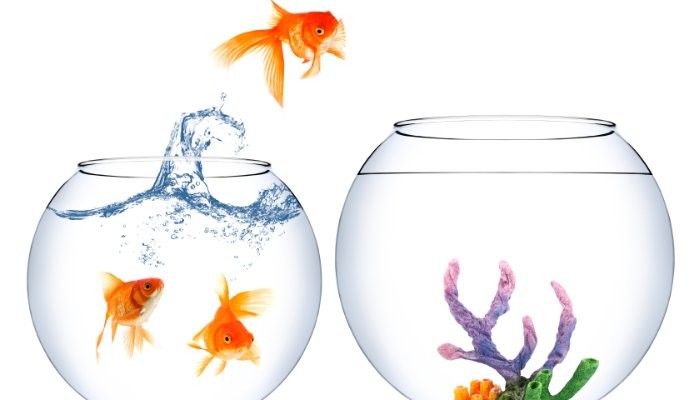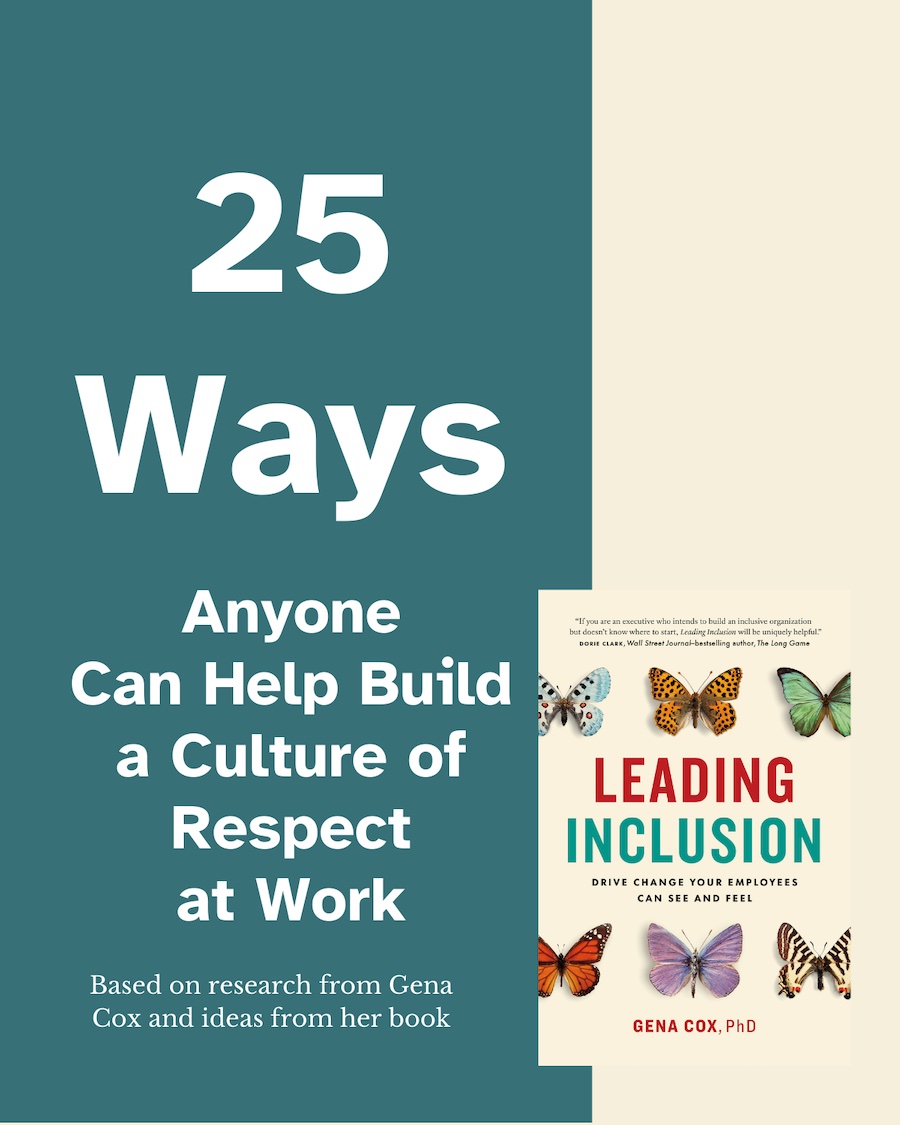Don’t Get Caught Between Fishbowls! Part 1

Many of the leaders and professionals I meet in business these days seem nervous and a little apprehensive – we are all focused on “something out there” we do not fully understand but for which we need to be prepared. Like the goldfish in the picture above who realizes that s/he needed to make the move from the familiar and serene bowl at the left to the new, exciting (and somewhat intimidating) bowl on the right.
The current business environment (that fishbowl on the right) is uniquely challenging
At the end of the Cold War, the US military coined a great acronym to represent the challenge of dealing with a world in which the “rules” had changed. That term, (VUCA) Volatility, Uncertainty, Complexity and Ambiguity, came into more common usage after 9/11 and after the financial crisis of 2008 to 2009. Today, anyone who works in business has the sense that the “old” rules may no longer apply and that we have to work smarter to succeed when everything around us is constantly changing. Regardless of our levels of experience or education, we have to keep learning new things and figuring out how to use that new knowledge to enhance our value. As Franklin D. Roosevelt said, “there are many ways of going forward, but only one way of standing still.”
The Merriam-Webster dictionary defines an “X Factor” as “a circumstance, quality, or person that has a strong but unpredictable influence.” An X-Factor is a variable in a given situation that could have the most significant impact on the outcome. If VUCA represents the unknown, then the “VUCA X-Factor” represents the ideas and actions we, as business people, can take in our work lives, to help ourselves adapt and thrive in the new fish bowl.
How to get the VUCA X-Factor so your new fishbowl won’t be so terrifying:
The term “X-Factor” is so evocative (to me) … it seems to have an emotional energy of its own; it’s a little exciting and a little “hokey” at the same time. I intentionally selected that term because the actions needed for success need to be a little (or a lot) outside of the ordinary. If it makes you think about the energetic, competitive, exciting, unconventional and sometimes maddening TV show by the same name, then we’re in sync. We all need to be energetic, competitive, exciting, and a little unconventional ourselves in order to succeed now.
My thoughts on this matter have been greatly influenced by research by futurists, industrial psychologists, business consultants and business leaders. Futurist Bob Johansen really freaked me out (in the nicest way) when he said that it is now easier to predict what will happen in 10 years than it is to predict what will happen in the next 2 years.
So… how do you get ready? I recommend the following actions (which I practice myself, religiously):
- Pay attention: Your fishbowl may be changing right in front of your eyes and you may not realize it until you splash down in the new one with that bewildered “what the heck?” look. That would be too bad AND too late!
- Try new things – become a rapid prototyper. You will fail at some but since you will not be wedded to just one, you will increase your chances for success. (As Franklin D. Roosevelt said in a May 1932 address at Oglethorpe University “It is common sense to take a method and try it; if it fails, admit it frankly and try another. But above all, try something.) I am an FDR fan BTW.
- Aim to constantly create value: Constantly become more valuable or risk becoming obsolete.
- Spend less time around the familiar: Share more time and ideas with people who are “different”.
- Spend more time on discovery tasks: And the corollary to this is also important: “spend less time on development and delivery tasks”.
- Use Big Data insights: That’s how your competition is getting the clarity to “see around the corner”. What are you doing?
- Continue to work on bringing people together: It’s STILL the quickest and most satisfying way to really make a difference.
In future blog posts, I will explain each of these ideas in greater detail. Please check back in if you haven’t yet mastered the swimming strokes you need for the new fish bowl. Check back in even if you have mastered the new bowl — share your ideas with the rest of us. We’re all still wearing training wheels (I mean “training masks”).









